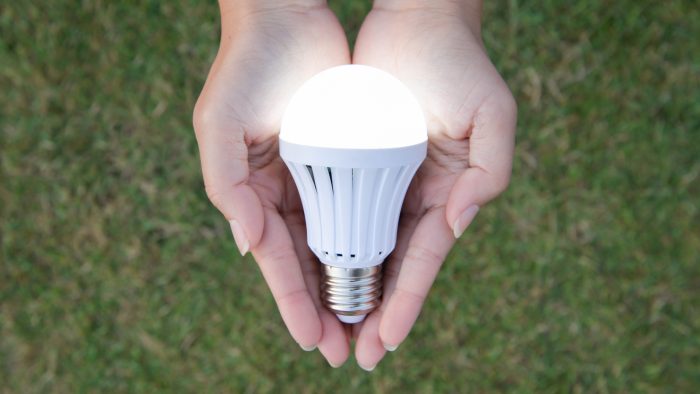
6 Crazy Ways Lighting Affects Your Health
Bright, natural lighting can contribute to alertness and increased energy in the mornings, or any time of day. Of course, it does the same at night, so it is best to avoid bright, overhead lights when it’s time to rest. Darkness and warm dim lights, especially at eye level, mimic the natural rhythm of the sun and notify your brain that it is time to slow down, so they’re a great tool to use in the evening hours.
1. Excessive Blue Light Can Lead to Sleep Deprivation and Stress
All lights have a color rating that ranks them on how much warmth (reddish, yellowish lights) or coolness (blue or white lights) they emit. Our bodies respond differently to each, but blue lights are especially worth mentioning. While exposure to blue light can provide a much-needed energy boost during the day, it also makes it much harder to sleep at night. Exposure to blue light from smartphones, laptops, and even low-quality bulbs in the hours before bedtime suppresses the bodies’ production of the sleep-inducing hormone melatonin, which can make it harder for us to drift off to sleep.
Though it’s difficult to achieve a consistent sleep schedule, sleep-deprivation has a whole host of emotional and physiological side effects, from impaired judgment and heightened stress to higher blood pressure. To avoid this and protect precious sleep, consider using indirect or accent lighting at night, or perhaps installing a dimmer to make your main light adjustable. Whenever possible, limit screen-time before bed to reduce your exposure to blue light for a better night of sleep.
2. Warm Lights Enhance Relaxation and Mood Regulation
Just like blue light from screens can keep you awake; warm lighting can aid relaxation and emotional regulation. In one study, participants experiencing anxious feelings calmed down more quickly in rooms with warm, cozy lights, as opposed to rooms with bright, blueish lights.
The principle applies equally in your home, which is why residential spaces most often use bulbs between 2700k and 3000k. Lights in this Kelvin range (the ranking of light color) are warm and relaxing, well-suited for your everyday environment. Lighting your spaces with lamps, dimmable lights, and layers of lights can enhance this even more, allowing you to control the quantity of light as well as its calming color.
3. Poor Lighting Worsens Depression, Vitamin D Deficiencies, and Migraines
We’ve all heard that poor lighting could cause eye damage, especially when reading, but what other effects can poor lighting have on us in our homes? Inadequate light can irritate existing conditions such as depression and vitamin D deficiencies, while proper lighting is known to improve mood and energy levels.
Surprisingly enough, insufficient light is not the only health-related lighting hazard. Overly bright, harsh light can be similarly detrimental to mood and productivity since it often triggers headaches and migraines.
4. Glare Causes Poor Eyesight and More
As stated above, many are already aware of the danger that dim lights have for our eyesight. What most underestimate, however, is the similar risks posed by reflected light and light glare. Blazing overhead lights, badly positioned spotlights, or reflected lights from screen can increase irritability, drowsiness, headaches, and double vision.
This obviously varies based on eye conditions, exact lighting configurations, and more. However, next time you flip that switch, it would not hurt to ask how that lighting makes you feel, and if different lighting might be more helpful for productivity and positivity.
5. Natural Light Increases Work Productivity
Research on office lighting and employee productivity provides great insight into personal and professional productivity. Natural light, and lots of it, helps to create the happiest, most productive work environment, while dim lighting can decrease work productivity. Working in a room with dim lights can cause eye strain, headaches, and drowsiness, all of which interfere with typical tasks.
Life has plenty of complexities, and a house full of perfect light bulbs obviously cannot solve all of them. What proper lighting can do, however, is eliminate visual stresses from your environment and send the right signals to your brain, helping it do what is best for you.
Lighting done right increases energy and productivity, not to mention relaxation and mood regulation, while bad lighting can interfere with sleep and worsen depression and migraines. For any questions about how to light your home and maximize health through lighting, call our experts at Lit Living. We are committed to your well-being and we are confident we can help.
